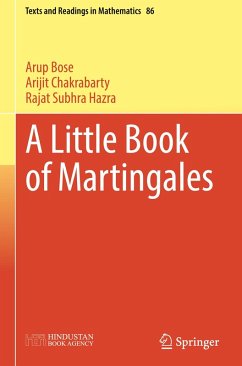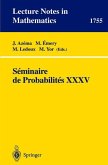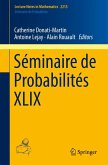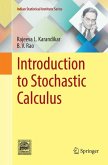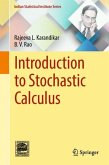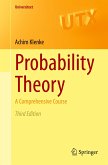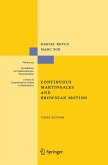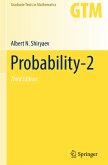This concise textbook, fashioned along the syllabus for master's and Ph.D. programmes, covers basic results on discrete-time martingales and applications. It includes additional interesting and useful topics, providing the ability to move beyond. Adequate details are provided with exercises within the text and at the end of chapters. Basic results include Doob's optional sampling theorem, Wald identities, Doob's maximal inequality, upcrossing lemma, time-reversed martingales, a variety of convergence results and a limited discussion of the Burkholder inequalities.
Applications include the 0-1 laws of Kolmogorov and Hewitt-Savage, the strong laws for U-statistics and exchangeable sequences, De Finetti's theorem for exchangeable sequences and Kakutani's theorem for product martingales. A simple central limit theorem for martingales is proven and applied to a basic urn model, the trace of a random matrix and Markov chains. Additional topics include forward martingale representation for U-statistics, conditional Borel-Cantelli lemma, Azuma-Hoeffding inequality, conditional three series theorem, strong law for martingales and the Kesten-Stigum theorem for a simple branching process. The prerequisite for this course is a first course in measure theoretic probability. The book recollects its essential concepts and results, mostly without proof, but full details have been provided for the Radon-Nikodym theorem and the concept of conditional expectation.
Applications include the 0-1 laws of Kolmogorov and Hewitt-Savage, the strong laws for U-statistics and exchangeable sequences, De Finetti's theorem for exchangeable sequences and Kakutani's theorem for product martingales. A simple central limit theorem for martingales is proven and applied to a basic urn model, the trace of a random matrix and Markov chains. Additional topics include forward martingale representation for U-statistics, conditional Borel-Cantelli lemma, Azuma-Hoeffding inequality, conditional three series theorem, strong law for martingales and the Kesten-Stigum theorem for a simple branching process. The prerequisite for this course is a first course in measure theoretic probability. The book recollects its essential concepts and results, mostly without proof, but full details have been provided for the Radon-Nikodym theorem and the concept of conditional expectation.

